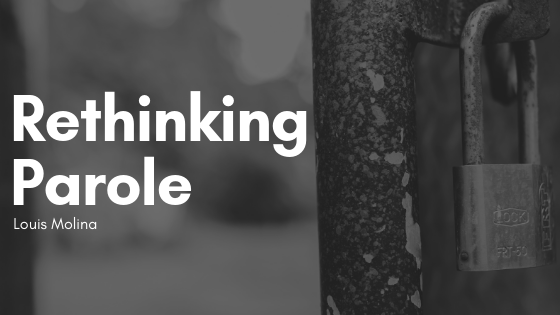I read an interesting article: Parole and Probation have grown far beyond resources allocated to support them by former NYC Probation Commissioner and current Co-Director, Columbia University Justice Lab Mr. Vincent Schiraldi.
Mr. Schiraldi is spot on when he asked the question, is parole and probation too big to succeed? Based on what I have read, through the evidence provided in Mr. Schiraldi’s article and the experience I have had particularly with Parole, my opinion is that not only is it too big to succeed, but the “check the box” compliance ethos is not a roadmap to success. I would describe it as an orange brick road back to prison, because of conditional release rules that for the most part do not allow a formerly incarcerated person to move on from their past. These rule violations led to technical parole violations that have returning citizens languishing in local jails awaiting their adjudication. In the first quarter of the fiscal year 2019, New York City had 674 parole violators. Six hundred seventy-four person in NYC DOC custody that represents approximately 7.3% of NYC Department of Correction average daily population or looking at it another way, over 50% of the bed capacity of George R. Vierno Center (GRVC) on Rikers Island. The current parole supervision in which punitive punishment of rules and mandates are used to revoke freedom, via technical parole violation, which continues to make us the most incarcerated Nation in the world second only to China.
Despite the huge cost to taxpayers to oversee parolees, the number of those being supervised is overwhelming compared to the number of state parole resources, which quite frankly has produced high recidivism rates. According to University of Minnesota, in 2014 thirty-eight percent of New York State prison admissions were due to violations of conditional release. In a time where it appears in vogue to recommend the abolishment of government agencies, parole oversight as it is currently constituted should make the list.
Therefore, what is the solution? As a criminal justice reformer, I want to be clear I am in favor of early conditional release via the State Parole Board or some other government body that grants conditional release based on a number of factors. However once a person is deemed eligible for release, the focus has to shift to supporting the person’s ability to adhere to their individual plan to get to a better place not through mandates, but with real support; you do not need a parole agency or parole officer to do that. Tax dollars currently used to support parole field operations should be used to fund nonprofit organizations that work with the formerly incarcerated with job-readiness training, traditional education, life skills, family mediation and mentoring.
If a person on conditional release is arrested and based on facts known at the time and the crime, a person’s conditional release could still be revoked for the sake of public safety, presuming they are deemed a risk to the community that can only be diminished by incarceration. This should be the only technical parole violation that exists that would re-incarcerate a person. Having parole officers is not a requirement for making that happen. This should be a role for the courts during the arraignment process in which a judge can remand the parolee into custody of the Department of Correction based on the risk they pose to public safety or of flight.
I am of course presenting this suggestion in its simplest form for the purpose of provoking thought on how we as a society want a justice system to work. There is a lot more work that has to be done in order to move forward on how we as a Nation support returning citizens from the prison system. What we do know is that the National Institute of Justice’s, Bureau of Justice Statistics studies have found high rates of recidivism: in 30 states over 400K prisoners were tracked after their release in 2005, and within three years of release approximately 67% were rearrested, and within five years approximately 76% were rearrested. It seems pretty clear that the current and various parole supervision models throughout the country are not yielding positive results. The taxpayers and returning citizens deserve better.

